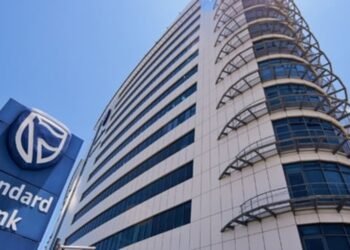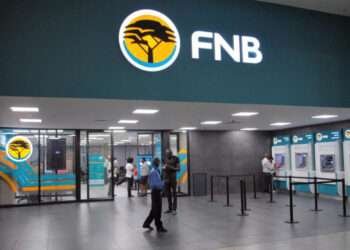Ghana’s Financial Intelligence Centre (FIC) has issued a stern warning over the growing threats posed by money laundering to the nation’s financial system and overall economic stability.
In its 2025 Anti-Money Laundering (AML) Report, the Centre highlighted that Ghana’s strategic location in West Africa, coupled with its increasingly complex financial system, has made the country a target for criminal networks seeking to channel illicit funds.
According to the report, predicate offences such as drug trafficking, corruption, fraud, and organised crime have become major contributors to the money laundering (ML) landscape. These activities not only undermine financial integrity but also expose Ghana to reputational damage, potential loss of investor confidence, and economic volatility.
The FIC identified the financial sector, real estate market, and informal trade spaces as particularly vulnerable to ML activities. These sectors are attractive to criminals due to their high liquidity, weak compliance mechanisms, and in some cases, inadequate regulatory oversight.
Cross-border transactions have also deepened the challenge. The report pointed to the use of shell companies and complex international remittance systems as methods that obscure detection and complicate enforcement. This makes it increasingly difficult for regulators and law enforcement agencies to track illicit funds and hold perpetrators accountable.
Fraud Still Dominates the ML Landscape
Among predicate offences, fraud remains the most pervasive. Between 2019 and 2023, the FIC investigated 27,043 fraud-related cases, charged 635 suspects with money laundering offences, and secured 111 convictions. While the number of fraud cases investigated has seen a notable decline due to stronger preventive measures, prosecutions have risen steadily, a sign of improved collaboration among law enforcement agencies and the judiciary.
The decline in investigated fraud cases is attributed to increased public awareness, stronger legislation, technological innovations, and proactive compliance by financial institutions. Nonetheless, the rising prosecution rate indicates that offenders are increasingly being held accountable, even as criminal networks adapt and evolve their tactics.
Despite the rising risks, Ghana has made progress in strengthening its Anti-Money Laundering, Countering the Financing of Terrorism, and Proliferation Financing (AML/CFT/CPF) framework. The FIC commended government efforts and collaboration with law enforcement agencies (LEAs) in adopting targeted measures such as capacity-building programs, inter-agency intelligence sharing, and policy reforms.
These efforts have also been complemented by increased judicial training, enabling courts to better handle complex financial crimes. The FIC stressed that while these measures are steps in the right direction, more needs to be done to close regulatory loopholes and adapt to the rapidly changing nature of illicit financial activities.
Economic Implications of Money Laundering
The FIC’s concerns underscore the far-reaching consequences money laundering poses to Ghana’s economy. At the macroeconomic level, it threatens financial stability by distorting capital flows and discouraging legitimate foreign investment. It also undermines government revenue collection efforts, erodes public trust in institutions, and hampers Ghana’s fight against corruption.
For businesses and individuals, the risks are equally severe. Fraudulent schemes targeting unsuspecting Ghanaians continue to drain resources, while legitimate enterprises operating in vulnerable sectors risk reputational damage and financial penalties if caught up in illicit transactions.
The FIC’s 2025 report concludes with a call for stronger collective action from government, private sector stakeholders, and the general public. The Centre urged financial institutions and real estate players to step up compliance efforts, while emphasizing the need for citizens to remain vigilant against fraudulent schemes.
“Money laundering is not just a financial crime; it is an economic and social threat that undermines national progress,” the report stated. “The fight requires collaboration, innovation, and sustained political will.”
As Ghana positions itself as a hub for regional trade and investment, tackling the risks posed by illicit financial flows will be essential to safeguarding the economy. With continued reforms and a proactive approach, the country can strengthen its defences against money laundering and ensure financial integrity for sustainable growth.
READ ALSO: Onanuga Hails Tinubu’s Policies For Naira Stability























